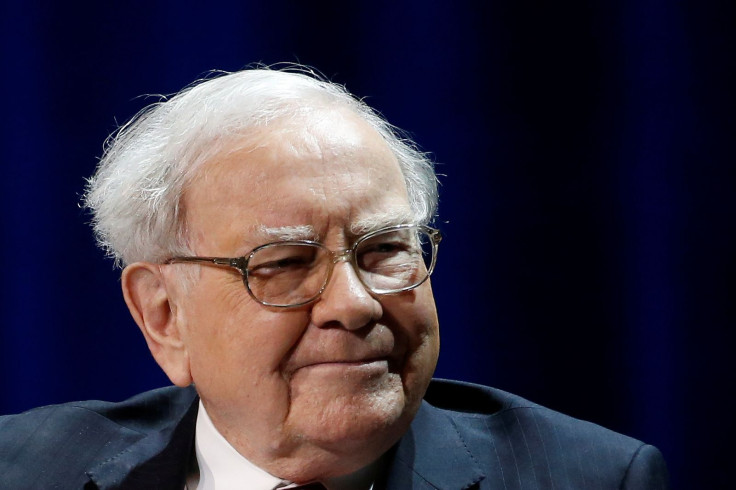Berkshire Hathaway Money And 6 Businesses Warren Buffett's Company Can Afford To Buy

This article originally appeared on the Motley Fool.
Berkshire Hathaway (NYSE:BRK-A) (NYSE:BRK-B) has a stockpile of nearly $100 billion in cash on its balance sheet, and is actively searching for ways to use it. With that in mind, and to get investors to appreciate the sheer enormity of this amount of money, let's take a look at some companies with market values less than Berkshire's current spending power.
How much cash does Berkshire Hathaway have?
In its first-quarter earnings report, Berkshire revealed that it holds about $96.5 billion in cash and equivalents such as Treasury securities, the most the company has ever held.
• Motley Fool Issues Rare Triple-Buy Alert
Furthermore, it's important to point out that Berkshire's cash hoard is much more usable than the cash stockpiles of many other companies, as virtually all of it is held in the United States. For example, Apple recently reported a staggering $256.8 billion cash hoard, but the vast majority of is held overseas, and would therefore be subject to hefty repatriation taxes if the company were to bring it home to use for an acquisition. So, for the moment at least, it doesn't represent as much purchasing power as it seems.
On the other hand, Berkshire could put its cash to work tomorrow fairly easily -- and it would, if the right deal came along. Warren Buffett hates having assets in cash, especially in the current low-interest environment, and would love to use Berkshire's cash to add value for shareholders.
What could Berkshire buy with its cash hoard
Now, Berkshire would never spend all of its cash. Buffett feels it's very important to keep a significant amount of cash, in order to take care of any short-term needs Berkshire may have. He's said several times that the absolute minimum level of cash he'd be comfortable with is $20 billion, which still gives a usable cash stockpile of $76.5 billion.
Just to put this amount of cash into perspective, consider what companies Berkshire could acquire in cash, tomorrow, based on each company's current equity market capitalization. (Note: These market values are simply based on each company's market cap as of May 8, 2017, and don't include any debt held by each company. In addition, in an actual acquisition, the price paid by an acquirer will typically represent a premium over the market value of the company's stock.)
To name a few, Berkshire could buy:
- Costco (Market cap of $75.9 billion)
- Lowe's ($73.5 billion)
- American Express ($69.8 billion); however, Berkshire already owns 17% of Amex, so the market value of the remaining 83% is $58 billion.
Whether Berkshire would actually be interested in buying any of these companies is another matter, but this certainly illustrates the enormity of Berkshire's cash hoard.
• This Stock Could Be Like Buying Amazon in 1997
The cash hoard doesn't tell Berkshire's true buying power
In response to a question asked by an analyst at Berkshire’s annual shareholder meeting about how much cash the company needs to have on hand in order to meet its regulatory requirements, Buffett and Charlie Munger acknowledged that Berkshire could potentially spend significantly more than its $96.5 billion cash hoard.
In fact, Munger feels that Berkshire could potentially do a $150 billion deal tomorrow if it wanted to, if it were willing to take on debt and/or sell some stocks in order to fund the deal. Buffett responded that he thinks the number is somewhat lower, but he agrees that there is the capacity to do a big purchase. However, keep in mind that in order for Berkshire to be willing to max out its purchasing power, we'd have to be talking about a pretty compelling deal. As Buffett puts it, "If we find a really big deal that makes compelling sense, we're going to do it."
Assuming Munger is right, take a look at a few of the companies Berkshire could feasibly acquire:
- Mastercard ($125.1 billion)
- 3M ($118.7 billion)
- McDonald's ($117.6 billion)
What will Berkshire actually do with its cash?
To be perfectly clear, I don't actually think Berkshire is going to buy Mastercard or McDonald's anytime soon. I'm just trying to illustrate Berkshire's massive spending ability. However, it's also important to point out that Berkshire is actively looking for ways to put its money to work, so an acquisition of this magnitude isn't out of the question.
The main reason Berkshire has as much cash as it does is a lack of attractive opportunities. I expect Berkshire to actively search for its next big acquisition, and if one doesn't come, the company has said it would possibly raise its buyback threshold and repurchase some shares, or even pay shareholders a dividend for the first time.
• 7 of 8 People Are Clueless About This Trillion-Dollar Market
The bottom line is that there are many different ways Berkshire could ultimately decide to put its cash to work, so we'll just have to wait and see. As a Berkshire shareholder myself, there's nobody I'd trust more with $96.5 billion than Warren Buffett and his team, and I'm excited to see what they can do with it.
Matthew Frankel owns shares of AXP, AAPL, and Berkshire Hathaway (B shares). The Motley Fool owns shares of and recommends AAPL, Berkshire Hathaway (B shares), Costco Wholesale, and MA. The Motley Fool recommends AXP and Lowe's. The Motley Fool has a disclosure policy.





















